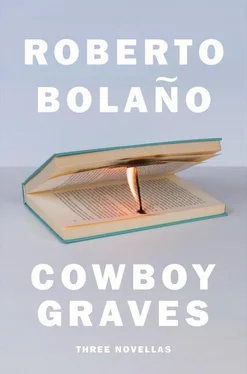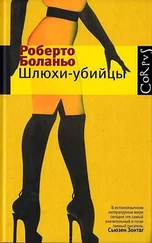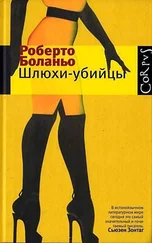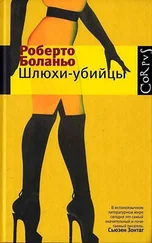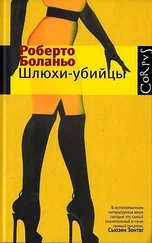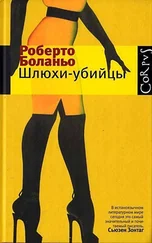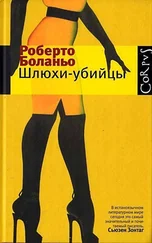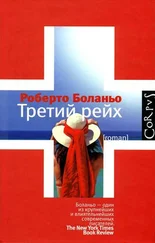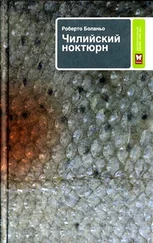Bibiano Macaduck’s Lecture at the Cortapalos Club of Concepción
When the war was over, Cherniakovski left the country. I guess he was looking for adventure or a break or he was trying to wipe the visions of delirium from his head. The fact is that he went to one of those Latin American cities that do their best to simulate hell. It had it all: gunmen, beggars, whores, child exploitation, everything you could ask for. Cherniakovski moved in with a reporter. In those days, of course, his name wasn’t Cherniakovski. Let’s say he went by Víctor Díaz. At first he lived a relatively quiet life. Maybe that was because he never went out. Víctor Díaz was a homebody. He got up late, past noon, brewed himself some coffee, and took his time drinking it. According to the reporter, Víctor Díaz wrote poems, short ones and not many of them, but all very polished, as was the norm among his old friends from Concepción. If you were born in the forties, you wrote short poems. If you were born in the fifties, you wrote epics. If you were born in the sixties, you wrote flatlined electroencephalograms. Ha ha, that’s a joke. Anyway: Víctor Díaz went back to writing little poems and he left the reporter’s house only to buy food and the like. Until one night he agreed to go out partying with some friends (the reporter’s friends) and he was introduced to the red-light district. Bad news. His eyes, which had seemed to soften in the peace and quiet, grew sharp again. His whole body was on fire after that first night. The next week, he ventured out again, but this time alone. And every night after that. According to the reporter, Víctor Díaz was asking to be stabbed or shot, but you and I know how tough Cherniakovski was. The lucky bastard! End result: he took a prostitute as a lover. She was fifteen or sixteen, and she had a twelve-year-old brother. The pimps of the red-light district wanted to sell the kid. Whether as a rent boy or as fresh meat for organ transplants, it’s not clear. Both were lucrative prospects. Víctor Díaz inhaled all the information he got from his lover like an addict going through withdrawal. There are men, I swear, who have some mysterious—even supernatural—ability to get their hands on any kind of weapon in any situation. Víctor Díaz was one of them. One night, he turned up with a Spanish Luger and he shot two pimps and three bodyguards. The sight of blood went to his head. Though according to other versions, he only killed one person. And I have a strong hunch of my own: the dead man was the prostitute’s father (though not the little brother’s). Either way, a crime was committed. There was blood. And it would all have turned into your typical tropical catastrophe were it not for the woman in this story. We can thank our lucky stars that the teenage prostitute had more sense and smarts than anyone could have imagined, because otherwise Víctor Díaz would be dead. Though we have our doubts about that. Anyway: the girl hid him, and we can guess that sooner or later they left the country. The prostitute, her little brother, and Víctor Díaz. The latter had contacts, and it seems that his companions came along for the ride. The three of them set off for some European country. Did Víctor Díaz marry his teen lover? Did the little brother go to school, did he make a place for himself in that strange and extraordinary culture? Did he learn to speak French, English, German? What was Víctor Díaz’s victory, exactly? Was it finding them a home in a suburb of Development? We’ll never be able to answer these questions with full confidence. Víctor Díaz got them settled, and after a while he left again. International terrorism was summoning our compatriot to other tasks…
Bibiano Macaduck’s Lecture at the Cortapalos Club of Concepción (2)
I’ve spoken about a child and a sacrifice. Sacrifice in the commercial sense of the word. Now I think I should add a thing or two. Traffic in children’s organs spread across Latin America at more or less the same time as Juan Cherniakovski (or Víctor Díaz) was wandering the Bolivarian stage with bloodshot eyes. And you’re right, the image isn’t mine—I stole it from some tabloid. The story, I think, unfolds like a performance at one of those so-called art house theaters: in the artificial dark of night, Víctor Díaz, one of legions of shuddering, sleepy Latin American macho men, arrives by chance at the heart of the slaughterhouse. The scenery is red and children roam a refrigerated corral awaiting their fate, which is to fly legally or clandestinely to private clinics in the United States or Canada—in some cases, clinics in Mexico, Guatemala, Puerto Rico—where they will undergo an operation. Everybody knows (since now and then El Mercurio makes it their business to inform us) that the waiting lists for those who need a kidney, a pancreas, or a heart can be long. So if you can pay for it (and in Real Democracies there is money), it’s more comfortable—and above all, safer—to go under the knife at one of these private clinics. The network is run by professionals and it’s efficient. There’s always material. This is important if you’re an engineer from San Francisco and you need a liver right away or the party’s over. It’s important if you’re a good parent and you know that unless your six-year-old gets a heart transplant in two weeks, he’ll die in your arms. Love—as everybody knows—moves mountains and spares no cost. Self-love or brotherly love. Need drives the market. And the market grows and fine-tunes itself. In the performance we were talking about, children wander bleak streets under palm trees. Other equally bloody stories unspool in the same place, but fate, which is like the devil and unites alpha and omega, led Víctor Díaz—who once upon a time wasn’t Víctor Díaz and relished the poetry of Gabriela Mistral—to immerse himself in this particular horror. The scenery is red, and gang bosses and bands of lowlifes stroll under the palm trees. Hideous crones, like the witch from “Hansel and Gretel,” play the part of health inspectors. Beggar children, homeless children, are the most common source of raw material. They’re relatively easy to catch and their absence goes mostly unnoticed, but they have one drawback, energetically decried by the medical teams of various clinics: they aren’t always healthy, their organs weak or ruined. The gang leaders deliberate in the land of Bolívar and San Martín, and after these parleys, commands fly across the theater at a speed achievable only by serious operators. Under the palm trees, when a sun of glossy paper—perfect imitation of a Siqueiros sun—sets over the saddest roofs on Earth, janissaries set out to steal children who’ve been better cared for. Speaking cinematographically, we move from Buñuel’s Los olvidados to some random Joselito movie. These aren’t middle-class children, obviously, but the children of workers. In fact, let’s call them the children of working mothers , so that Víctor Díaz’s eyes explode like neutron bombs. Seamstresses, shoe factory workers, waitresses, teachers, the occasional prostitute with a heart of gold. The business advances by leaps and bounds. In the land of palm trees and beyond, everyone has heard of it and it is occasionally discussed in hushed voices. Publicly, nobody will touch it or go near it. The criollo authorities respond in time-honored fashion by covering their ears. Like the three little monkeys, like Harman and Ising’s cartoon version of the three little monkeys. Worse, if possible. The bosses are efficient and keep a low profile. The press lavishes well-informed citizens with details of the drug trade and the arms trade, which carry on like something in the foreground of a Flemish painting, while in the background a long line of children are carted off to the slaughterhouse. (For further information, I recommend Auden, the poem that begins: “About suffering they were never wrong, / The Old Masters: how well they understood / Its human position; how it takes place / While someone else is eating or opening a window or just walking dully along…” etcetera, etcetera, though I suppose you’ve never heard of Auden, like good Chileans.) The silence, as I was saying, is almost total. Every so often there’s a bit of news, not in the papers or on television, but in magazines, like stories about flying saucers. We know it exists, but the reality is so awful that we’d rather pretend we don’t. That’s human progress. Assaults on a deserted street are awful at first, and break-ins are even worse, but we end up coming to terms with both. We’ve progressed from the perfect execution to the concentration camp and the atomic bomb. We seem to have stomachs of steel, but we’re not ready to digest child-killing cannibalism, despite the counsel of Swift and Dupleix. We’ll accept it eventually, but not yet. Meanwhile business prospers under the palm trees, and the Siqueiros sun rises and falls like a mad mandrill. The witches touch up their warts with French makeup. The child hunters play cards and fondle their privates like degenerate Narcissuses, fathers and brothers of us all. Víctor Díaz (a man who really preferred the love of men) falls in love with an adolescent prostitute and embraces the Terror. His formula is expressed as the curtain falls: if Paradise, in order to be Paradise, is fertile soil for a vast Hell, the duty of the Poet is to turn Paradise into Hell. Víctor Díaz and Jesus Christ set fire to the palm trees.
Читать дальше
